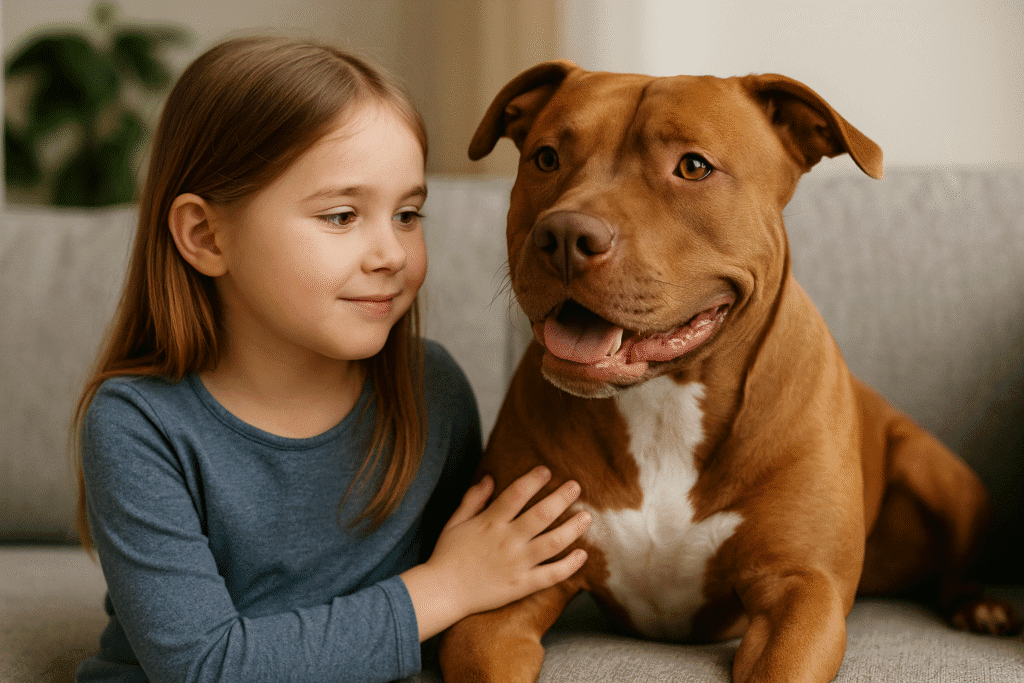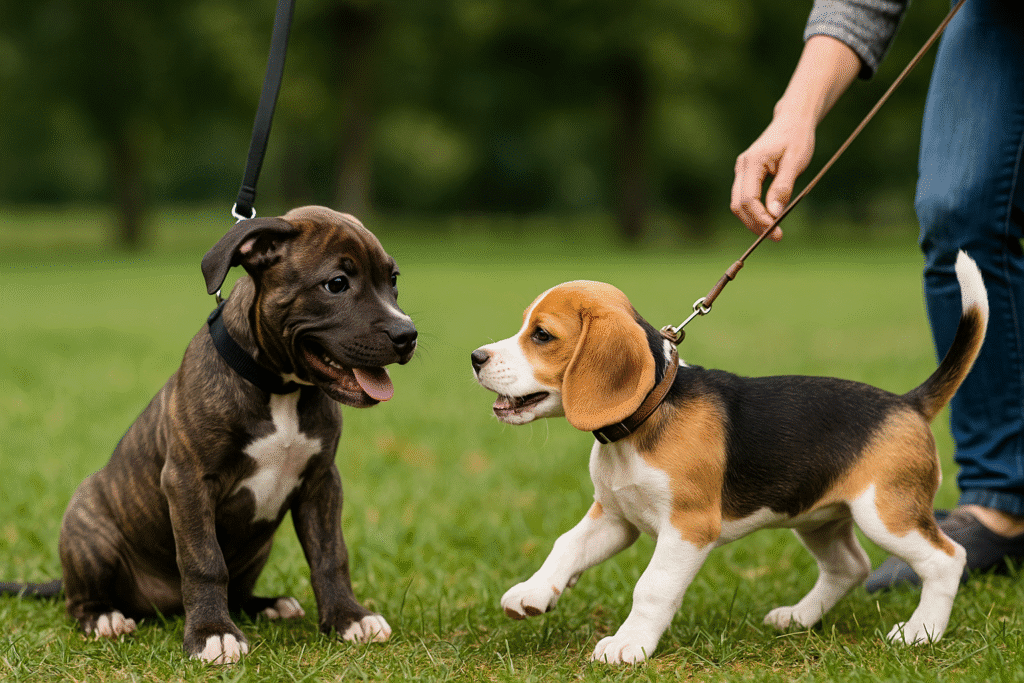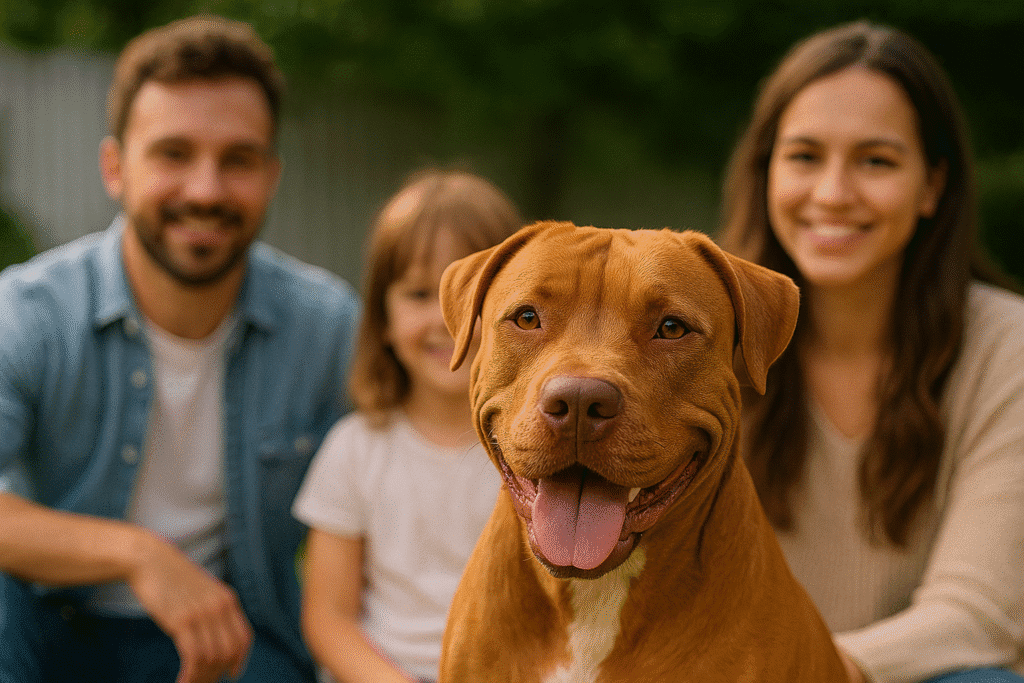summary: The American Pit Bull Terrier is often misunderstood, but with the right care, training, and socialization, this loyal and affectionate breed can be an amazing companion. This guide explores their temperament, health needs, and effective socialization strategies for a happy, well-adjusted Pit Bull.
Introduction
The American Pit Bull Terrier is a powerful yet affectionate dog breed that has faced years of misconceptions. Known for their loyalty and intelligence, Pit Bulls thrive when provided with proper training, consistent care, and early socialization. In this guide, you’ll learn about their temperament, care requirements, health considerations, and essential tips for raising a well-balanced companion.

Temperament of the American Pit Bull Terrier
Loyal and Affectionate Companions
Despite their reputation, American Pit Bull Terriers are highly affectionate and loyal dogs. They bond strongly with their families and are known to be especially gentle with children when properly trained.
High Energy and Intelligence
Pit Bulls are active, intelligent dogs that need both physical and mental stimulation. Without adequate outlets, their energy may lead to unwanted behaviors. Structured play sessions, puzzle toys, and obedience training are essential to keep them engaged.
Misconceptions and Breed Stigma
Many Pit Bulls suffer from negative stereotypes. Education and responsible ownership are crucial to shifting public perception. Organizations like ASPCA provide resources to understand the true nature of this breed.
Essential Care for American Pit Bull Terriers
Nutrition and Diet
A balanced diet is essential to maintain muscle tone and energy levels. High-quality protein-based dog food, paired with controlled portion sizes, helps prevent obesity—a common health risk in Pit Bulls.
Exercise Requirements
Pit Bulls require at least 60–90 minutes of daily exercise. Activities like running, agility training, and structured fetch games help release their energy and strengthen the bond with their owners.
Grooming Needs
With their short, smooth coat, grooming is relatively low-maintenance. Weekly brushing helps minimize shedding, while regular nail trimming and dental care are essential for overall health.

Health Concerns in Pit Bulls
While generally healthy, American Pit Bull Terriers are prone to certain genetic conditions:
- Hip Dysplasia: A common joint issue that may cause discomfort in older dogs.
- Skin Allergies: Many Pit Bulls develop sensitivities to food or environmental factors.
- Heart Disease: Regular vet check-ups are important to monitor cardiac health.
For more detailed health guidelines, resources like PetMD offer valuable insights.
Socialization Tips for Pit Bulls
Start Early
Introducing puppies to a variety of people, pets, and environments during their early weeks is critical. Early exposure reduces fear and aggression later in life.
Positive Reinforcement Training
Pit Bulls respond best to positive reinforcement. Rewarding good behavior with treats, praise, or playtime encourages obedience and strengthens trust.
Controlled Play Sessions
Supervised playdates with other well-behaved dogs teach Pit Bulls proper canine manners and reduce reactivity.
Living with an American Pit Bull Terrier
When properly trained and cared for, Pit Bulls make excellent family pets. They thrive in homes where they are included in daily activities and given plenty of love and structure.

Frequently Asked Questions (FAQ)
- Are Pit Bulls good family dogs?
Yes. With proper training and supervision, Pit Bulls are affectionate, loyal, and gentle with children. - Do Pit Bulls require a lot of exercise?
Yes, at least 60–90 minutes of daily activity is recommended to keep them healthy and balanced. - Are Pit Bulls aggressive by nature?
No. Aggression usually stems from poor training or lack of socialization. With proper guidance, Pit Bulls are loving and friendly. - Can Pit Bulls live in apartments?
Yes, as long as they receive sufficient exercise and mental stimulation.
Conclusion
The American Pit Bull Terrier is a loyal, intelligent, and affectionate breed that deserves a chance beyond the stereotypes. With the right care, consistent training, and early socialization, Pit Bulls can thrive as loving family members.
Call to Action
Want to learn about other amazing dog breeds? Check out our complete dog breed guide here.

